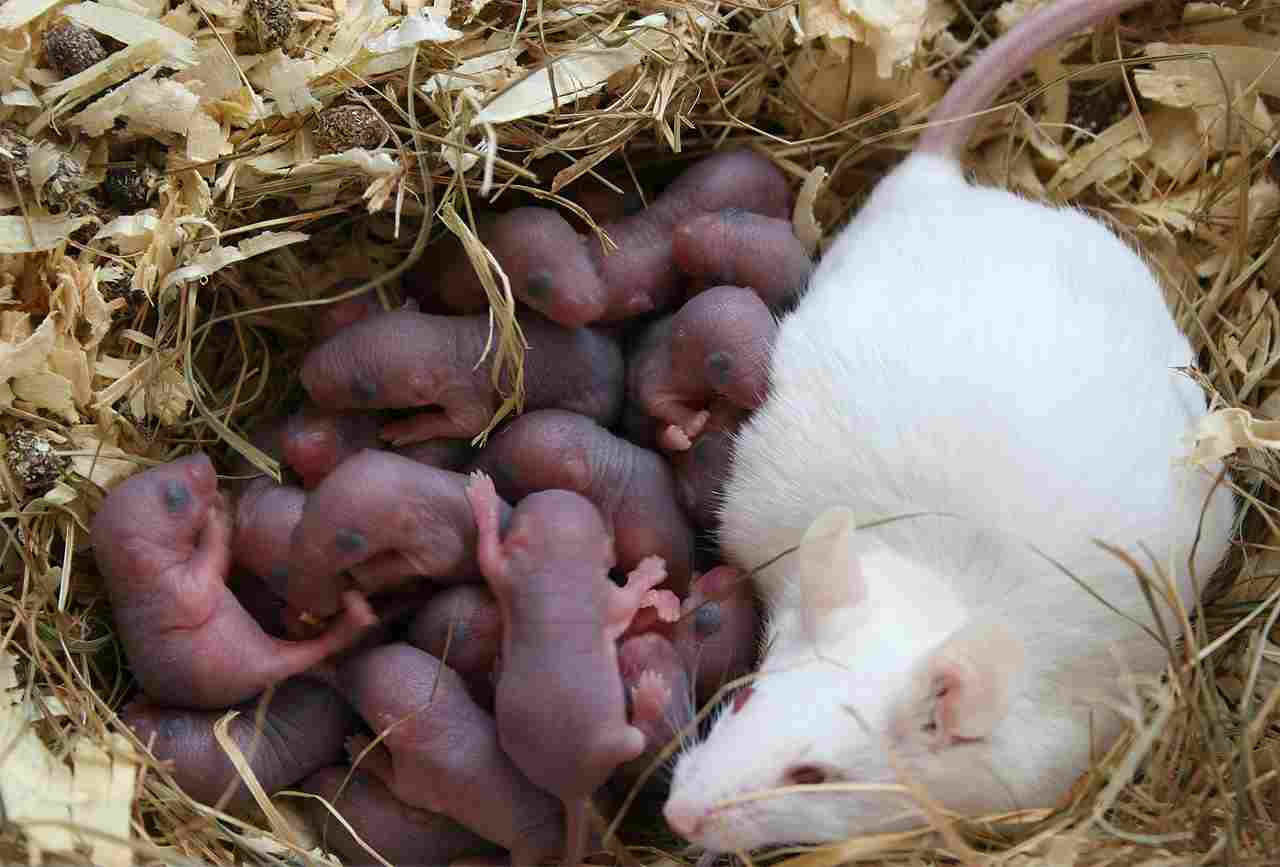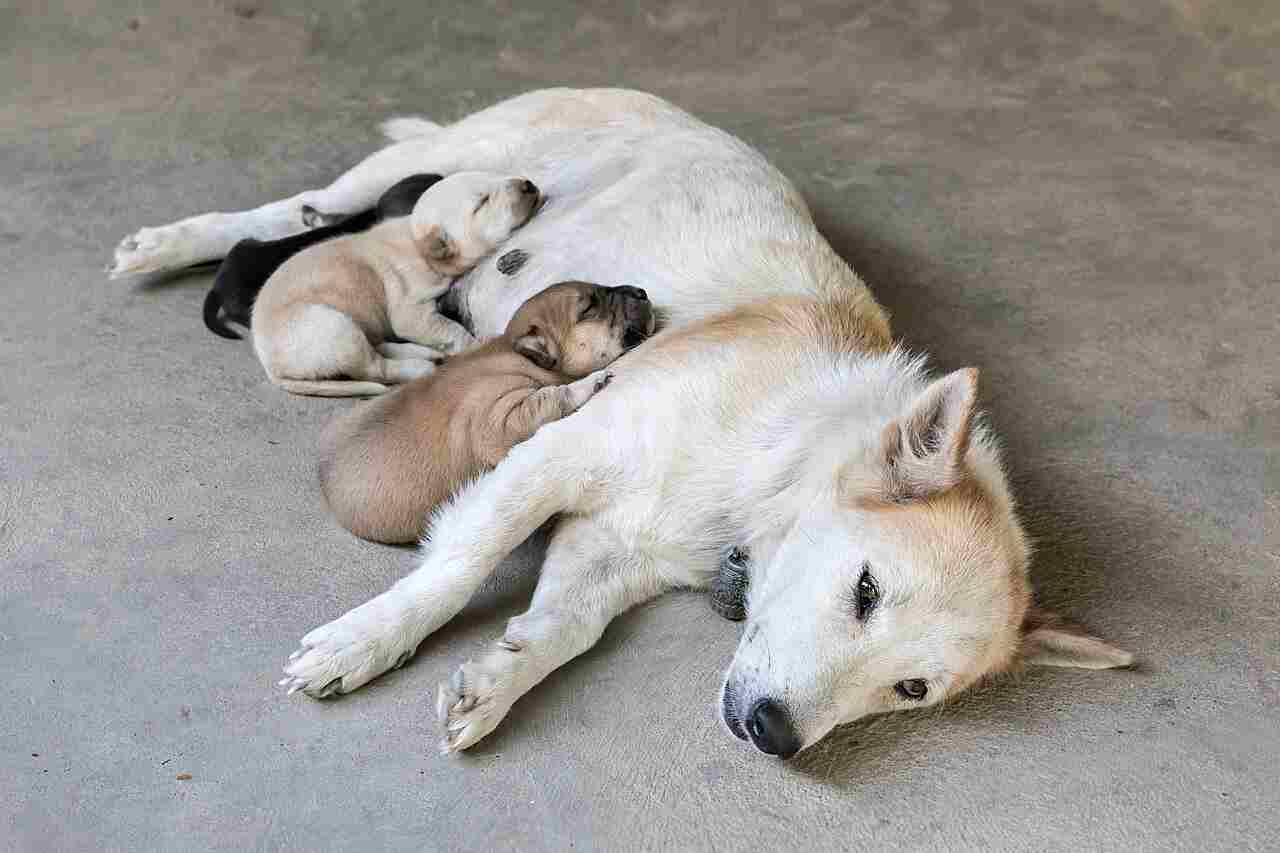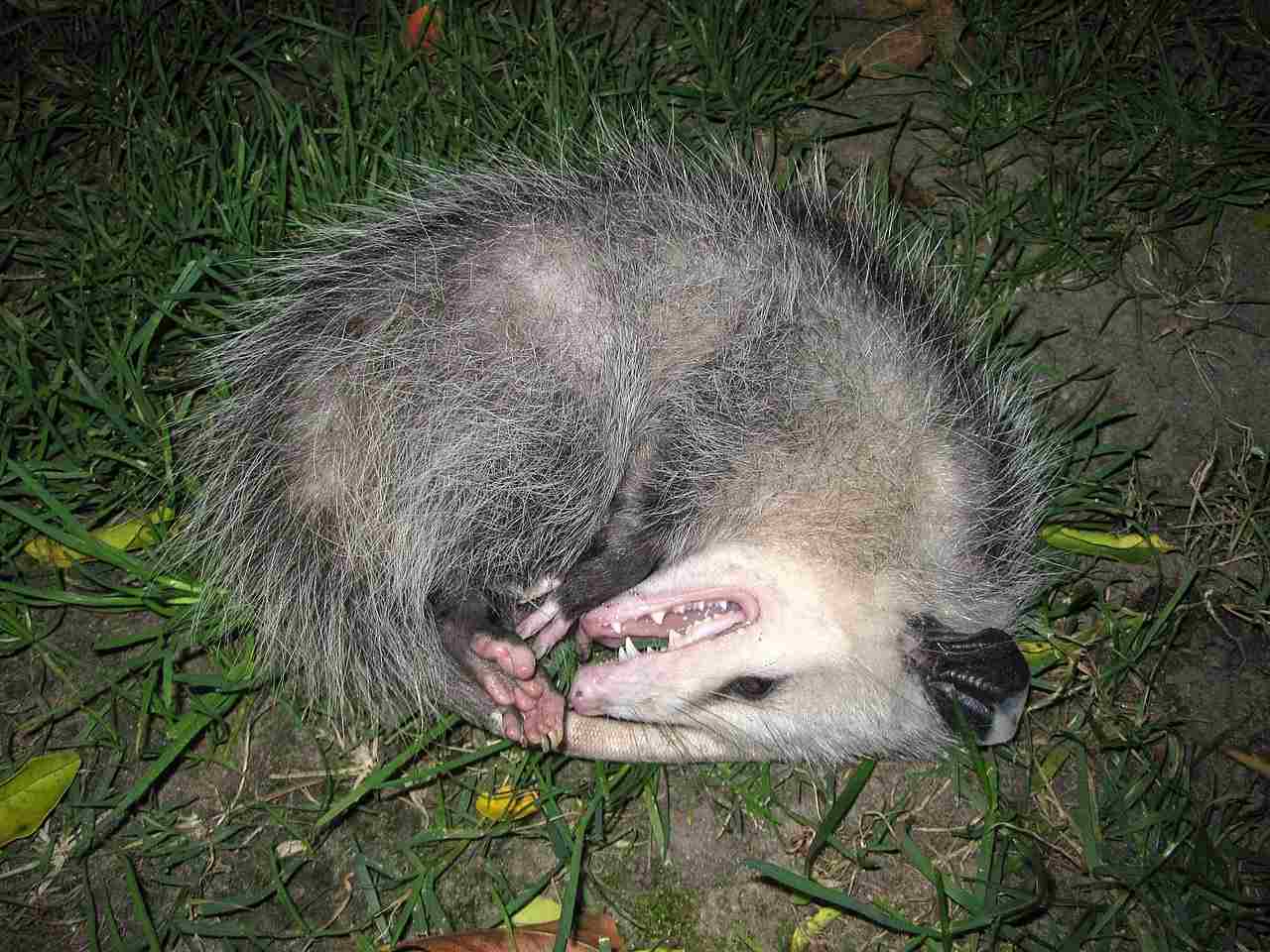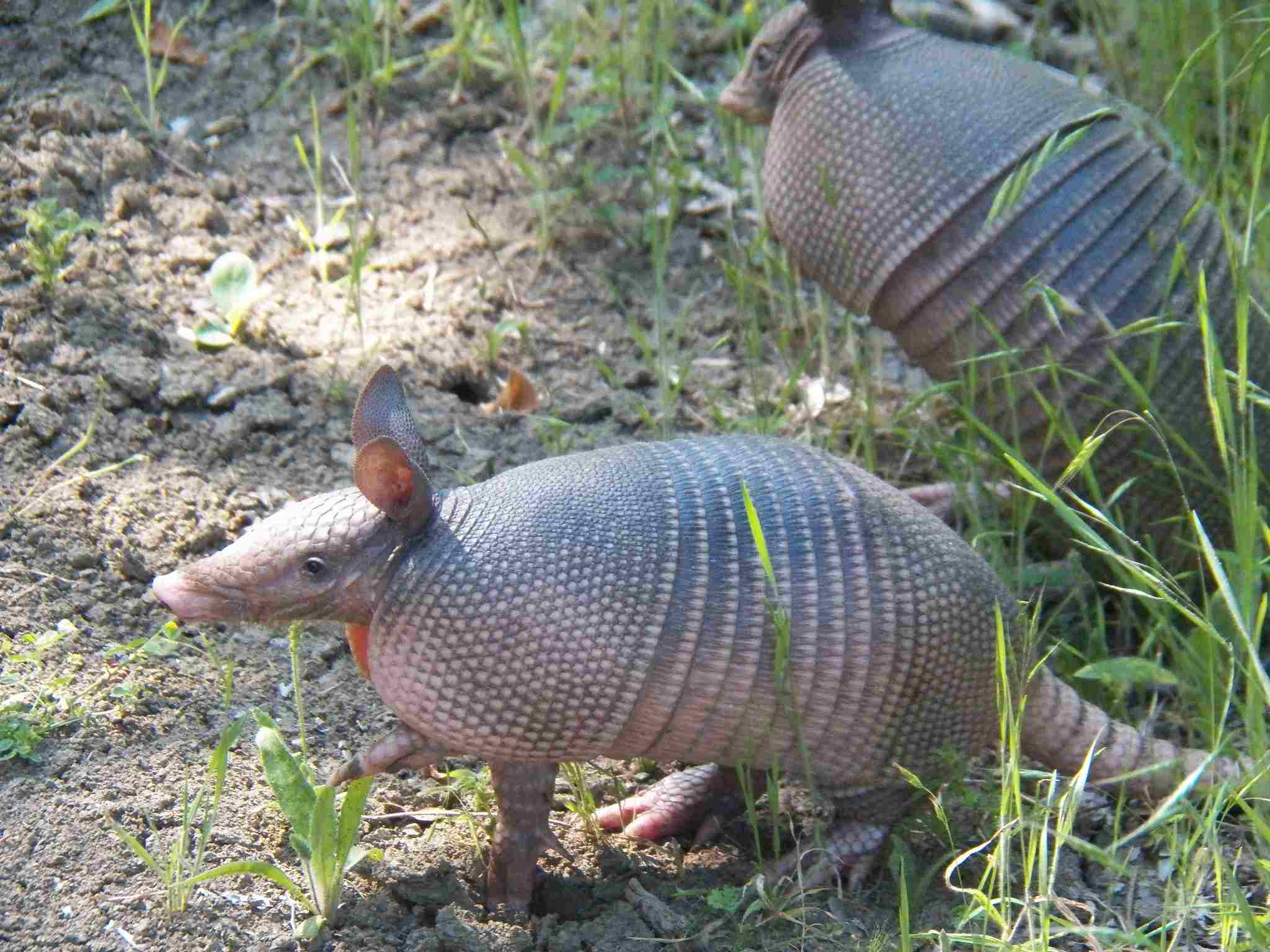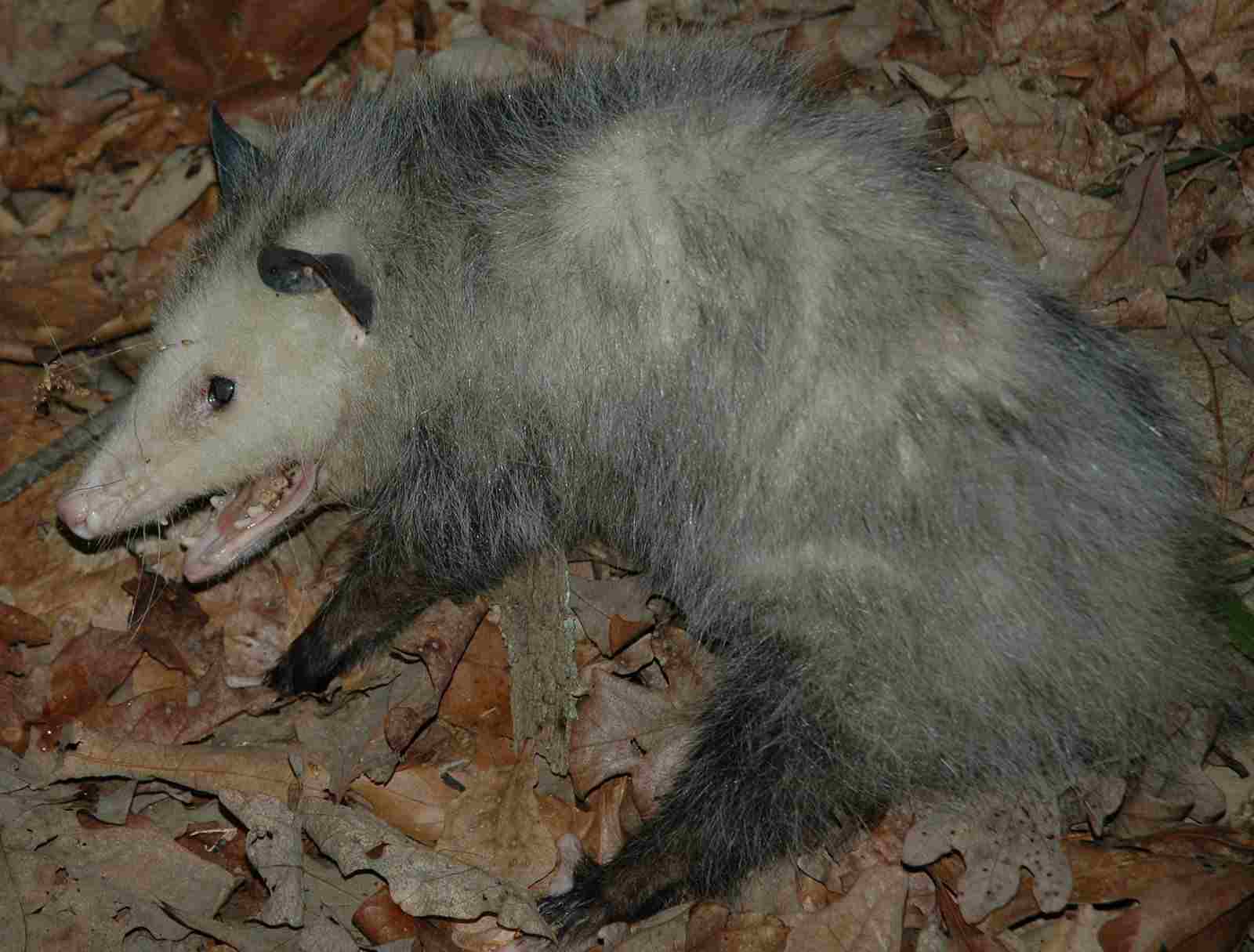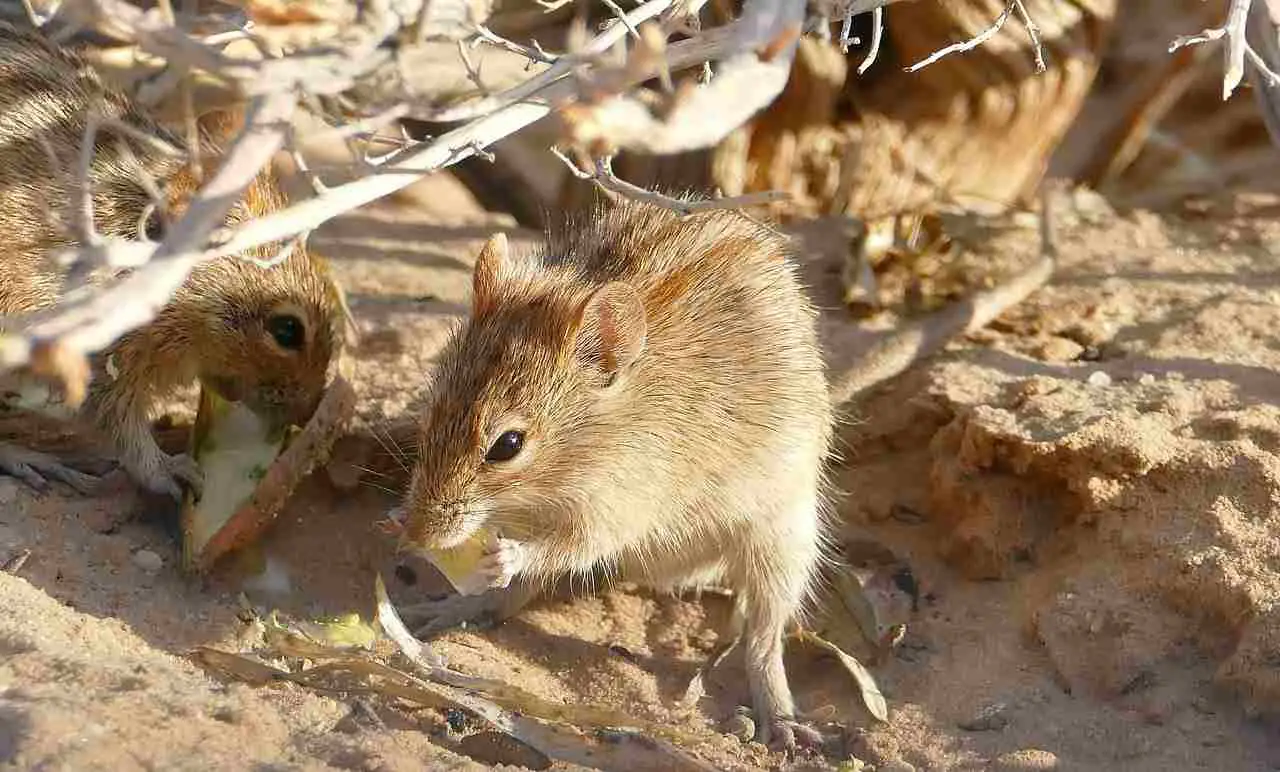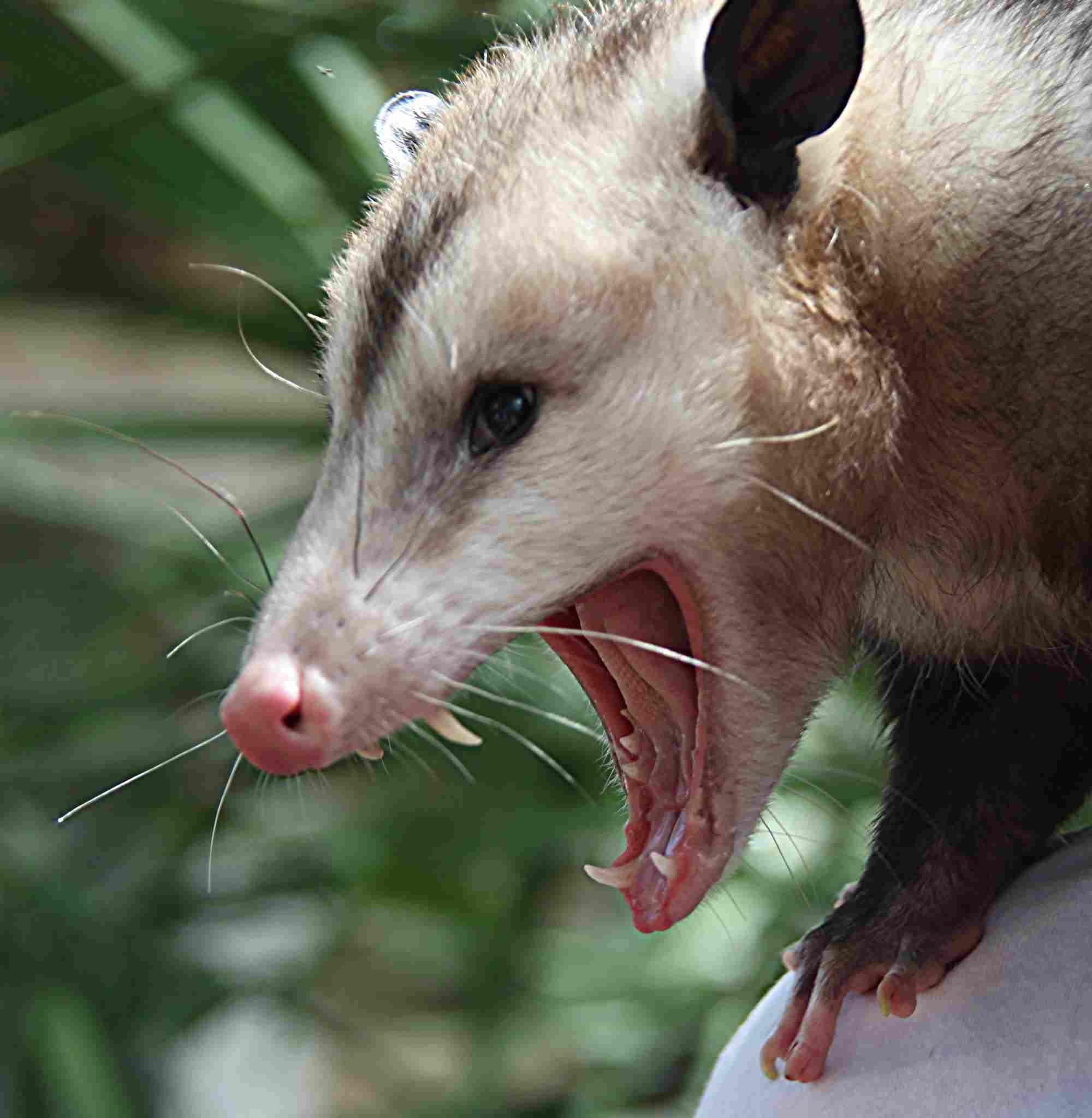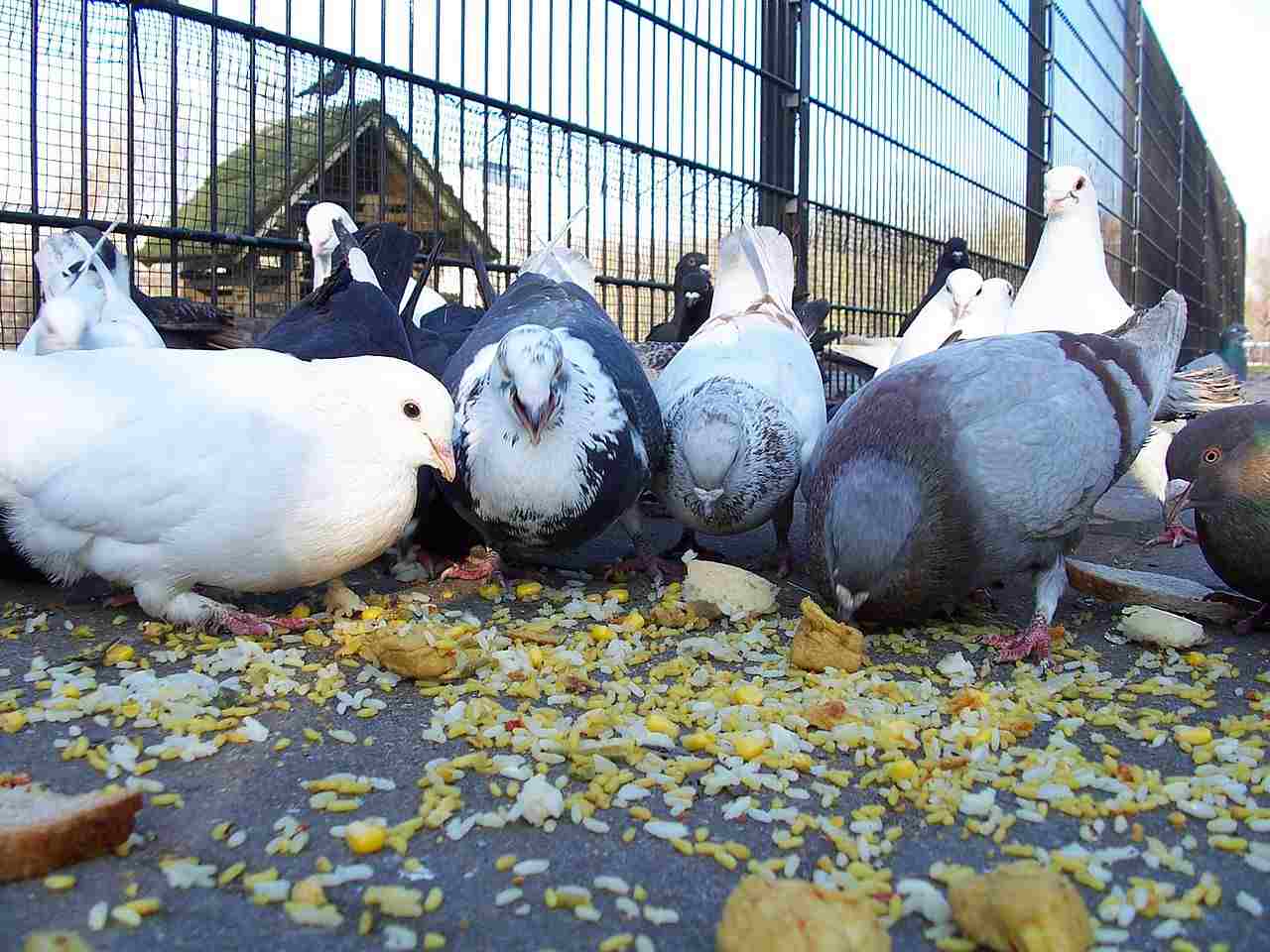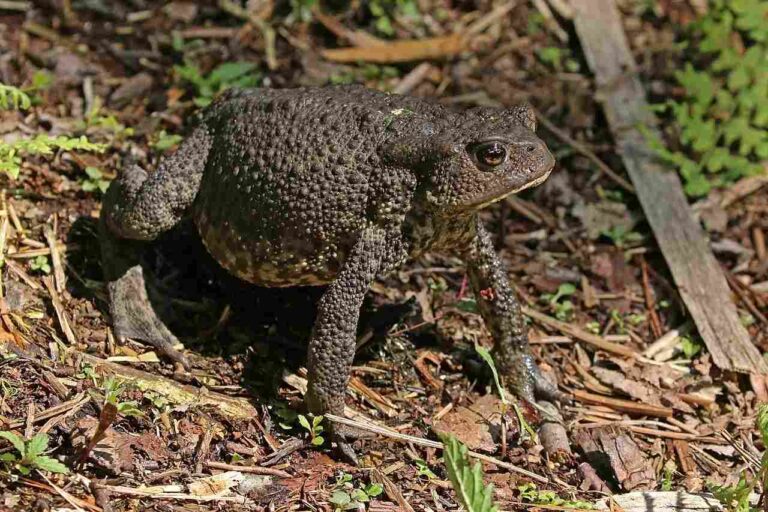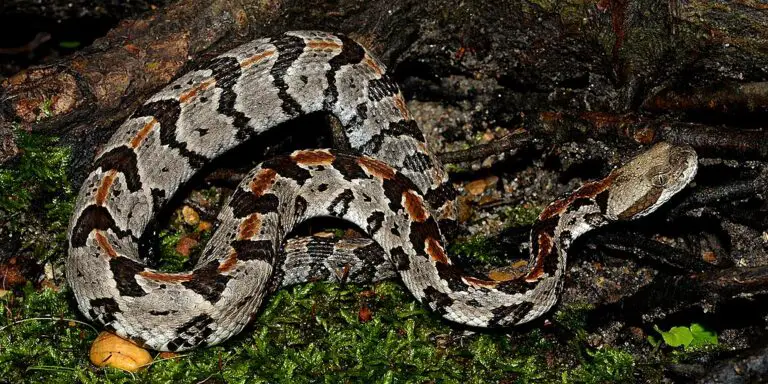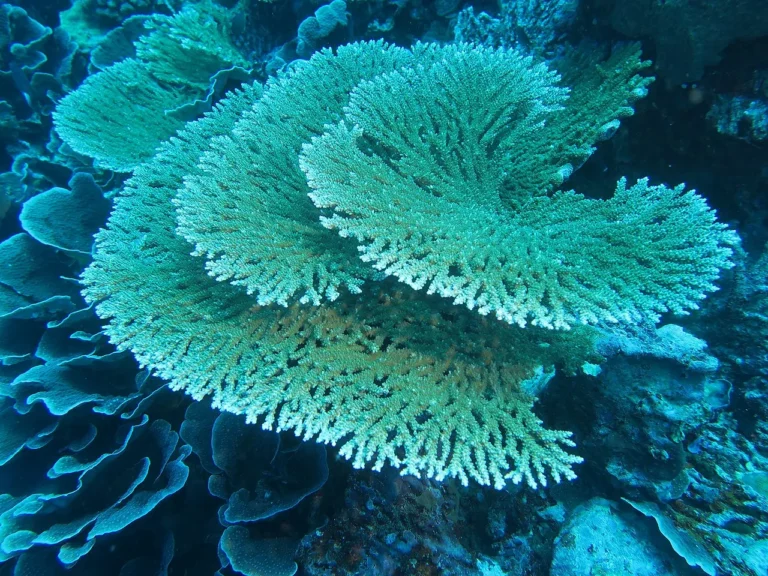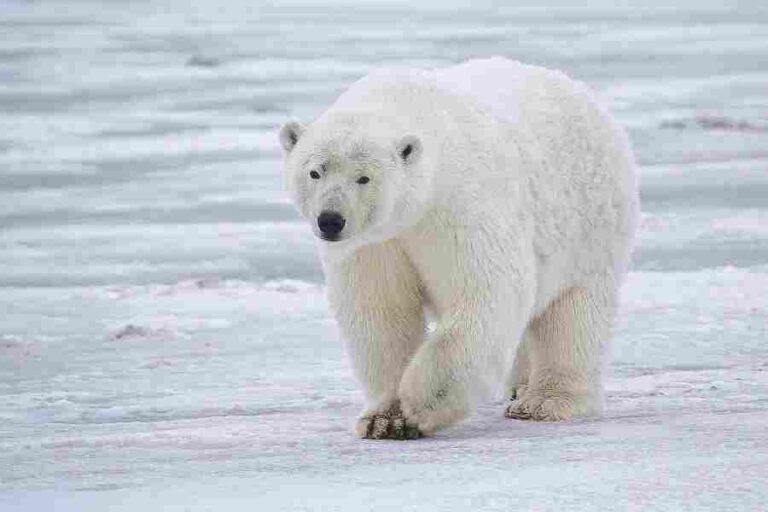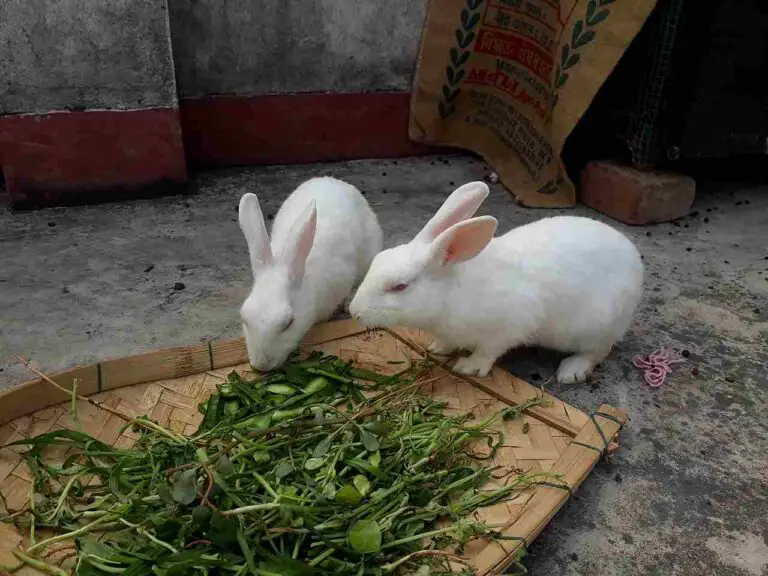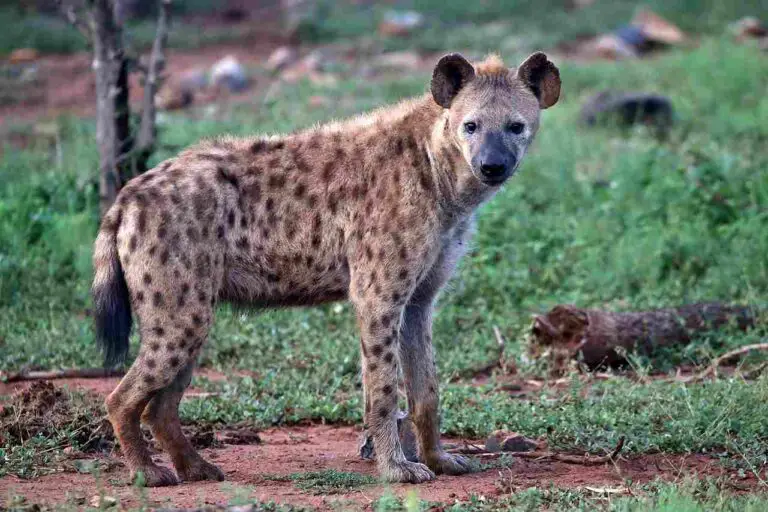What Do Possums Eat in the Winter? Overview of Possum Diet
Possums are opportunistic omnivores, which means they have a wide range of food options available to them during the winter. They are active throughout the year, so they do not hibernate like some other animals. In order to survive, possums rely on a diverse diet that includes berries, nuts, leftover pet food, small vertebrates, insects, and even leftover human food.
They are known to forage in garbage cans to find food, making them adaptable and resourceful. This ability to eat a variety of foods helps possums to survive during the winter when their usual food sources may be scarce.
Factors that Influence What Possums Eat in Winter
1). Absence of Hibernation
The absence of hibernation is a key factor that influences what possums eat in winter. Unlike hibernating animals that store or reserve food, possums do not have this behavior. This means that they need to actively search for food throughout the winter months to sustain themselves.
Possums are opportunistic feeders and will eat a variety of foods depending on what is available. They have a diverse diet that includes fruits, berries, nuts, seeds, and grains. They are also known to consume smaller animals such as amphibians, reptiles, birds, and insects. Additionally, possums are scavengers and will feed on carrion, which is the decaying flesh of dead animals.
In winter, possums may face challenges in finding enough food due to the scarcity of resources. However, they are adaptable creatures and can adjust their diet based on what is available in their environment. They may also take advantage of human habitation areas where they can find abundant waste, such as leftover human food or pet food.
2). Availability of Edible Materials
The availability of edible materials is another significant factor that influences what possums eat in winter. Possums are resourceful creatures and will take advantage of any food sources they can find to sustain themselves during the colder months.
One source of food that possums may rely on is abundant waste in areas close to human habitation. This waste can include leftover human food or pet food that has been discarded. Possums are known to scavenge for these food sources, making use of the readily available nutrition.
In addition to human waste, possums may also find edible materials in natural environments. They have a diverse diet that includes fruits, berries, nuts, seeds, and grains. While these food sources may be less abundant in winter, possums are adaptable and can search for them in various locations.
Possums are skilled climbers and can access trees and shrubs to find fruits and berries. They can also forage on the ground for nuts, seeds, and grains that may have fallen or been exposed. By utilizing their natural instincts and exploring their surroundings, possums can find the edible materials they need to survive the winter.
3). Environmental Conditions
Environmental conditions play a crucial role in determining what possums eat during the winter months. The severity of the winter weather directly impacts the availability of food sources for these resourceful creatures.
During harsh winters, when food is scarce, possums may have to rely on alternative food options to survive. They are known to adapt their diet based on the environmental conditions they face. For example, if there is heavy snowfall, possums may have difficulty accessing their usual food sources such as fruits, berries, and nuts.
In such situations, possums may resort to scavenging for carrion or feeding on smaller animals like mice and rats. These opportunistic omnivores can also consume insects, amphibians, reptiles, and even birds if necessary. Their ability to adapt their diet to the available resources is a testament to their survival instincts.
However, it is important to note that possums primarily rely on plant matter as their main food source. They are classified as primary consumers due to their trophic impact and relatively small size. This means that even in harsh environmental conditions, possums will still seek out plant-based food options whenever possible.
What Do Possums Eat?
What possums eat includes; fruits, berries, nuts, seeds, grains, smaller mammals, amphibians, reptiles, birds, insects, and carrion. This shows that opossums are highly opportunistic omnivores. They are however classified as primary consumers because their diet is dominated by plant matter, as well as due to their relatively small size and trophic impact.
Below is a brief discussion of each potential food source for possums;
1). Fruits
Fruits are an important part of a possum’s diet, providing them with essential nutrients and energy. Possums are known to consume a variety of fruits, including apples, pears, bananas, and berries. These fruits not only serve as a source of hydration but also offer nutritional benefits such as vitamins, minerals, and antioxidants.
Fruits can be a major or supplementary food source for possums, depending on their availability. During the winter months when other food sources may be scarce, fruits become even more important for possums to sustain themselves. They are attracted to ripe fruits that have fallen to the ground, as well as those still hanging from trees.
In addition to fruits, possums also rely on other food sources to meet their dietary needs. They are opportunistic feeders and will consume a wide range of plant and animal matter. Some other food sources for possums include berries, nuts, seeds, grains, smaller mammals, amphibians, reptiles, birds, insects, and carrion.
For example, possums may feed on berries such as blackberries, raspberries, and blueberries when they are in season. These berries provide a good source of carbohydrates and fiber for possums. They are also attracted to nuts like acorns and walnuts, which offer them a high-fat content and energy.
It is important to note that possums are not solely dependent on fruits for their survival. They have adapted to be able to consume a wide range of food sources, allowing them to be flexible in their diet. This adaptability is one of the reasons why possums are successful in various habitats and environments.
2). Berries
Berries are another important component of a possum’s diet, providing them with essential nutrients and energy. Possums are known to consume a variety of berries, including blackberries, raspberries, and blueberries. These berries not only serve as a source of hydration but also offer nutritional benefits such as vitamins, minerals, and antioxidants.
Berries can be a major or supplementary food source for possums, depending on their availability. During the winter months when other food sources may be scarce, berries become even more important for possums to sustain themselves. They are attracted to ripe berries that are in season and can be found in abundance in certain areas.
In addition to berries, possums also rely on other food sources to meet their dietary needs. They are opportunistic feeders and will consume a wide range of plant and animal matter. Some other food sources for possums include fruits, nuts, seeds, grains, smaller mammals, amphibians, reptiles, birds, insects, and carrion.
For example, possums may feed on fruits such as apples, pears, and bananas when they are available. These fruits provide a good source of hydration and essential nutrients for possums. They are also attracted to nuts like acorns and walnuts, which offer them a high-fat content and energy.
3). Nuts
Nuts are an important part of a possum’s diet, providing them with essential nutrients and energy. Possums are known to consume a variety of nuts, including acorns and walnuts. These nuts offer possums a high-fat content and energy, making them a valuable food source.
Nuts have nutritional benefits for possums. They are rich in fats, proteins, and carbohydrates, which are essential for their survival and overall health. The high-fat content in nuts provides possums with the energy they need to stay active and maintain their body temperature during the winter months.
While nuts are not the primary food source for possums, they can be a major or supplementary part of their diet, depending on their availability. Possums are opportunistic feeders and will consume nuts when they are accessible. They are attracted to nuts that have fallen from trees or are easily accessible on the ground.
In addition to nuts, possums rely on a variety of other food sources to meet their dietary needs. They are known to eat fruits, berries, seeds, grains, smaller mammals, amphibians, reptiles, birds, insects, and carrion. This diverse diet ensures that possums have access to a wide range of nutrients and can adapt to different environmental conditions.
For example, possums may feed on fruits such as apples, pears, and bananas when they are available. These fruits provide possums with hydration and essential nutrients. Possums also consume berries, which offer vitamins, minerals, and antioxidants. This variety in their diet allows possums to thrive in different habitats and seasons.
4). Seeds and Grains
Seeds and grains are another important component of a possum’s diet, providing them with essential nutrients and energy. Possums are known to consume a variety of seeds and grains, including sunflower seeds, corn, and oats. These food sources offer possums a rich source of carbohydrates, proteins, and vitamins, making them a valuable food source.
Seeds and grains have nutritional benefits for possums. They are rich in carbohydrates, which provide possums with the energy they need to stay active and maintain their body temperature during the winter months. Additionally, seeds and grains contain proteins that are essential for possums’ growth and overall health. They also provide possums with vitamins and minerals that support their immune system and help them thrive in their environment.
While seeds and grains are not the primary food source for possums, they can be a major or supplementary part of their diet, depending on their availability. Possums are opportunistic feeders and will consume seeds and grains when they are accessible. They are attracted to seeds and grains that have fallen from plants or are easily accessible on the ground.
In addition to seeds and grains, possums rely on a variety of other food sources to meet their dietary needs. They are known to eat fruits, berries, nuts, smaller mammals, amphibians, reptiles, birds, insects, and carrion. This diverse diet ensures that possums have access to a wide range of nutrients and can adapt to different environmental conditions.
For example, possums may feed on sunflower seeds, which are rich in healthy fats and proteins. These seeds provide possums with the energy they need to survive the winter months. Possums also consume grains such as corn and oats, which offer carbohydrates and essential nutrients. This variety in their diet allows possums to maintain a balanced and nutritious intake throughout the year.
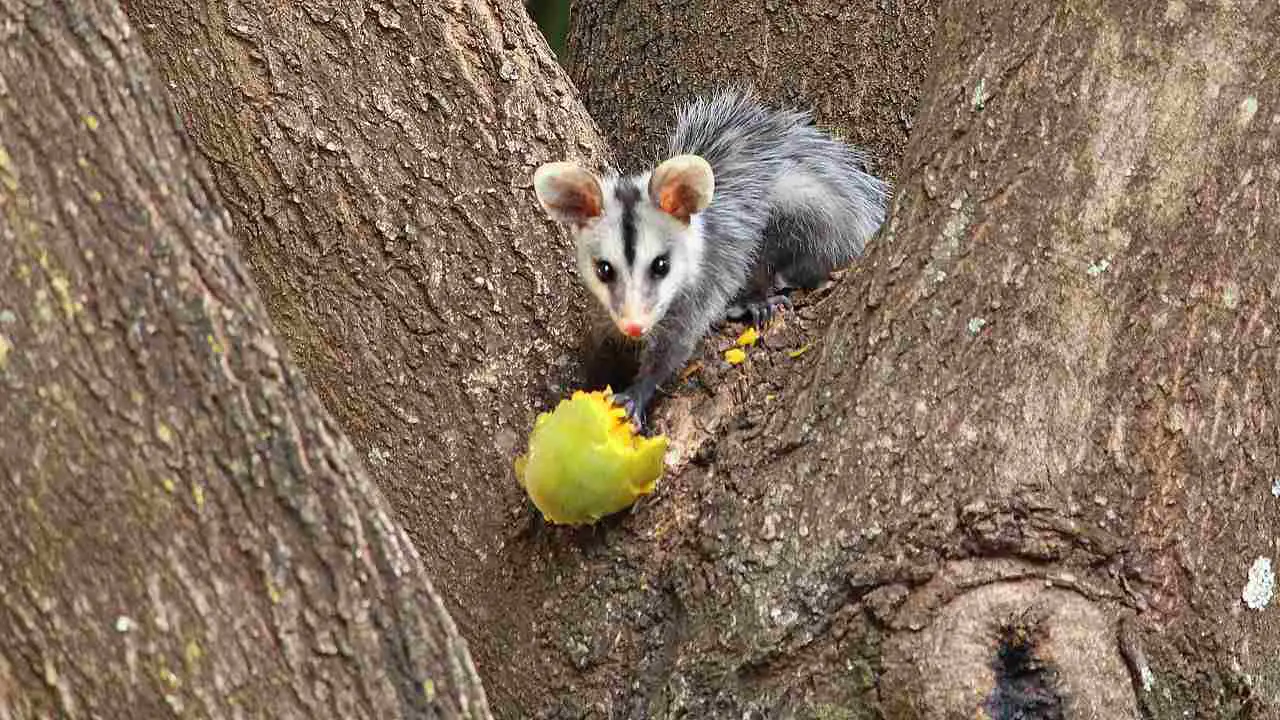
5). Smaller Animals
Possums are opportunistic feeders and will consume smaller animals when they are available. While not a primary food source, smaller animals can be a major or supplementary part of a possum’s diet, depending on their availability. These animals provide possums with important nutritional benefits and contribute to their overall health and well-being.
One example of smaller animals that possums eat is rodents. Possums are known to prey on mice and rats, which can be found in various habitats. Rodents are a good source of protein for possums, helping them to build and maintain muscle mass. They also provide essential amino acids that support possums’ growth and development.
In addition to rodents, possums may also consume other small mammals such as rabbits and squirrels. These animals offer possums a rich source of nutrients, including proteins, fats, and vitamins. By including smaller mammals in their diet, possums ensure they have a diverse range of nutrients to support their energy needs and overall health.
While smaller animals are not the primary food source for possums, they play an important role in their diet. Possums are adaptable creatures and will take advantage of any available food source to meet their nutritional requirements. This flexibility allows possums to survive and thrive in different environmental conditions.
It’s worth noting that possums are not solely carnivorous. They have a diverse diet that includes fruits, berries, nuts, seeds, insects, and carrion. This variety in their food choices ensures that possums have access to a wide range of nutrients and can adapt to changing food availability throughout the year.
6). Amphibians
Amphibians are another food source that possums include in their diet. These creatures, such as frogs and toads, provide possums with important nutritional benefits. While not a major food source, amphibians can be a supplementary part of a possum’s diet, depending on their availability.
Possums are known to consume various species of frogs and toads. These amphibians offer possums a good source of protein, which is essential for their growth and development. Protein helps possums build and repair tissues, maintain a healthy immune system, and produce enzymes and hormones. By including amphibians in their diet, possums ensure they have access to this vital nutrient.
In addition to protein, amphibians also provide possums with other essential nutrients. They are rich in vitamins and minerals, including vitamin A, vitamin B12, iron, and calcium. These nutrients support possums’ overall health and contribute to the proper functioning of their body systems.
While possums primarily rely on other food sources, such as fruits, berries, nuts, and insects, amphibians offer them a diverse range of nutrients. This diversity is important for possums to meet their nutritional requirements and maintain optimal health.
An example of what possums eat in terms of amphibians is the American bullfrog. These large frogs are commonly found in wetland areas and provide possums with a substantial food source when available. Possums will consume the entire frog, including the legs, body, and organs, to obtain the maximum nutritional benefits.
7). Reptiles
Reptiles are another important component of a possum’s diet. While not a major food source, they do provide possums with valuable nutritional benefits. Possums are known to consume various reptiles, including snakes, lizards, and turtles, depending on their availability.
Reptiles offer possums a good source of protein, which is essential for their growth and overall health. Protein helps possums build and repair tissues, maintain a strong immune system, and produce important enzymes and hormones. By including reptiles in their diet, possums ensure they have access to this vital nutrient.
In addition to protein, reptiles also provide possums with other essential nutrients. They are rich in vitamins and minerals, such as vitamin A, vitamin D, calcium, and phosphorus. These nutrients support possums’ overall health and contribute to the proper functioning of their body systems.
While reptiles may not be a primary food source for possums, they offer a diverse range of nutrients that complement their diet. Possums primarily rely on other food sources, such as fruits, berries, nuts, and insects. However, when reptiles are available, possums will take advantage of the nutritional benefits they provide.
An example of a reptile that possums may consume is the Eastern box turtle. These turtles are commonly found in wooded areas and provide possums with a substantial food source when accessible. Possums will consume the entire turtle, including the shell, to obtain the maximum nutritional benefits.
8). Birds
Birds are another important component of a possum’s diet. While not a major food source, they do provide possums with valuable nutritional benefits. Possums are known to consume various birds, including smaller species like sparrows, robins, and finches, depending on their availability.
Birds offer possums a good source of protein, which is essential for their growth and overall health. Protein helps possums build and repair tissues, maintain a strong immune system, and produce important enzymes and hormones. By including birds in their diet, possums ensure they have access to this vital nutrient.
In addition to protein, birds also provide possums with other essential nutrients. They are rich in vitamins and minerals, such as vitamin B12, iron, and zinc. These nutrients support possums’ overall health and contribute to the proper functioning of their body systems.
While birds may not be a primary food source for possums, they offer a diverse range of nutrients that complement their diet. Possums primarily rely on other food sources, such as fruits, berries, nuts, and insects. However, when birds are available, possums will take advantage of the nutritional benefits they provide.
An example of a bird that possums may consume is the house sparrow. These small birds are commonly found in urban areas and provide possums with a supplementary food source when accessible. Possums will consume the entire bird, including feathers and bones, to obtain the maximum nutritional benefits.
9). Insects
Insects are a significant part of a possum’s diet, providing them with essential nutrients and serving as a major food source. Possums consume a variety of insects, including beetles, grasshoppers, crickets, and caterpillars. These small creatures offer possums a rich source of protein, vitamins, and minerals.
Possums rely on insects as a major food source, especially during the warmer months when insects are abundant. Insects provide possums with high-quality protein, which is crucial for their growth, development, and overall health. Protein helps possums build and repair tissues, maintain a strong immune system, and support various physiological functions.
In addition to protein, insects also offer possums other important nutrients. They are rich in vitamins, such as vitamin B12, which is essential for possums’ nervous system function and the production of red blood cells. Insects also contain minerals like iron and zinc, which contribute to possums’ overall health and well-being.
While insects are a major food source for possums, they also consume other food sources to ensure a balanced diet. Possums supplement their insect intake with fruits, berries, nuts, seeds, and even smaller animals like birds and reptiles. This diverse diet allows possums to obtain a wide range of nutrients necessary for their survival.
An example of an insect that possums may consume is the caterpillar. Caterpillars are abundant during certain seasons and provide possums with a nutritious meal. Possums will consume the entire caterpillar, including its soft body and exoskeleton, to obtain the maximum nutritional benefits.
10). Carrion
Carrion, which refers to the decaying flesh of dead animals, can be a part of a possum’s diet. Possums are opportunistic feeders and will scavenge on carrion when it is available. This can include the remains of roadkill or other dead animals they come across.
Carrion can provide nutritional benefits to possums. While the decaying flesh may not be the most appetizing to us, it can be a valuable food source for possums. Carrion can contain high levels of protein, fats, and other nutrients that possums need for their survival.
However, it is important to note that carrion is not a major or primary food source for possums. They primarily rely on other food sources such as fruits, berries, nuts, seeds, insects, and smaller animals like birds and reptiles to meet their nutritional needs. Carrion is more likely to be consumed as a supplementary food source when other options are scarce.
Possums have a diverse diet, and their ability to adapt to different food sources is one of the reasons for their success as a species. While carrion may not be their preferred choice, possums are known for their opportunistic feeding behavior and will take advantage of available resources to ensure their survival.
An example of carrion that possums may consume is the remains of roadkill. When a possum comes across a carcass on the road, it may scavenge on the decaying flesh for its nutritional benefits. This behavior helps possums make the most of their environment and utilize resources that would otherwise go to waste.
Do Possums Eat Rats?
Possums are known to eat a variety of small vertebrates and invertebrates, including rats. Along with other rodents like mice, possums also consume cockroaches, bugs, reptiles, and various home and garden pests. This opportunistic scavenging behavior can actually be indirectly helpful to humans, as possums help clean up the environment and suppress the emergence of vector-driven diseases like Lyme’s.
There are several reasons why possums may eat rats. One reason is that rats are a common prey item and a source of nutrition for possums. Possums have a diverse diet and are adaptable in their feeding habits. They are known to take advantage of available food sources, including rats, to meet their nutritional needs.
The condition under which possums eat rats is typically when other food sources are scarce. Possums primarily rely on fruits, berries, nuts, seeds, insects, and smaller animals like birds and reptiles to meet their nutritional requirements. However, when these preferred food sources are limited, possums may turn to rats as an alternative food source.
It’s important to note that while possums do eat rats, they do not solely rely on them as a primary food source. Possums have a varied diet and will consume a wide range of food items depending on availability. Rats are just one of the many food options that possums may encounter and consume in their environment.
Do Possums Eat Mice?
Yes, possums do catch and prey on mice along with other small vertebrates and invertebrates. Mice are a common prey item and a source of nutrition for possums. Both field mice and house mice can be on the menu for possums.
Possums have a diverse diet and are opportunistic feeders. They will take advantage of available food sources to meet their nutritional needs. While possums primarily rely on fruits, berries, nuts, seeds, insects, and smaller animals like birds and reptiles, they will also consume mice when other food sources are scarce.
Mice are small and relatively easy for possums to catch and consume. They provide a good source of protein and nutrients for possums, especially when their preferred food sources are limited. Possums have sharp teeth and claws that allow them to capture and kill mice efficiently.
It’s important to note that possums do not solely rely on mice as a primary food source. They have a varied diet and will consume a wide range of food items depending on availability. Mice are just one of the many food options that possums may encounter and consume in their environment.
Possums play an important role in controlling rodent populations, including mice. By preying on mice, possums help to keep their numbers in check and reduce the potential damage and diseases that mice can cause. This natural pest control behavior can be beneficial for humans, especially in agricultural and residential areas.
Possum Bait For Trap
Because possums are opportunistic feeders, various edible can be used a bait for them in traps. Suitable bait for possums include; peanut butter, fruits, vegetables, berries, grains, leftover human food, pet food.
It is best to place the bait beyond the trigger plate on the back end of the trap, and away from the edges where animals cannot get to the bait without contacting the trigger plate.
Below is a brief discussion of usable baits for possums;
1). Peanut Butter
Peanut butter is a highly effective bait for trapping possums. Its strong aroma and rich flavor make it irresistible to these opportunistic feeders. When using peanut butter as bait, it is important to place it beyond the trigger plate on the back end of the trap. This ensures that the possum has to fully enter the trap to reach the bait, increasing the chances of a successful capture. Additionally, positioning the bait away from the edges of the trap prevents the possum from accessing it without triggering the trap.
To optimize the use of peanut butter as possum bait, consider spreading a thin layer on a piece of bread or a cracker. This helps to prolong the bait’s effectiveness and prevents the possum from easily removing it from the trap. Remember to check the trap regularly to ensure the captured possum is promptly released or disposed of in accordance with local regulations. By using peanut butter as bait, you can increase the likelihood of successfully trapping possums and effectively managing their presence.
2). Fruits
Fruits are not only a delicious treat for humans, but they also make a tempting bait for possum trapping. The sweet and aromatic nature of fruits attracts possums, making them an effective lure. When using fruits as bait, it is important to choose ripe and juicy ones, such as apples, bananas, or grapes. These fruits emit a strong scent that possums find irresistible.
To use fruits as possum bait, place small pieces or slices inside the trap, ensuring they are easily accessible to the possum. You can also hang fruits from the top of the trap to entice the possum to enter. Remember to check the trap regularly to prevent the fruits from rotting and losing their appeal.
Using fruits as bait not only increases the chances of trapping possums but also provides them with a natural food source. By using fruits that are readily available, you can effectively manage possum populations while ensuring their nutritional needs are met.
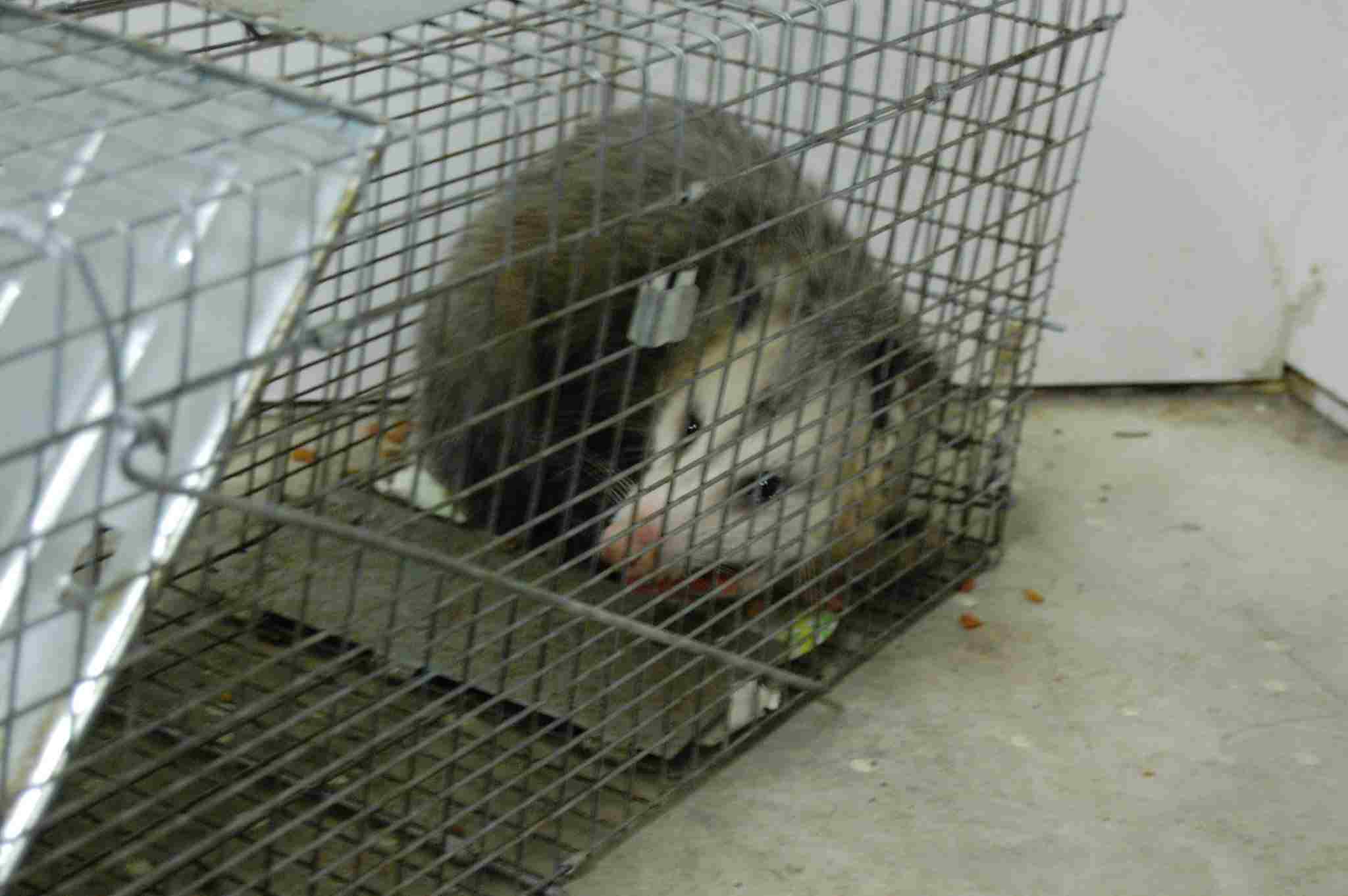
3). Vegetables
Vegetables are another effective bait option for trapping possums. Their fresh and vibrant colors, along with their distinct smells, can attract possums and entice them into the trap. When using vegetables as bait, it is important to choose ones that are easily accessible and appealing to possums. Carrots, sweet potatoes, and leafy greens like lettuce or kale are great options.
To use vegetables as possum bait, place small pieces or slices inside the trap, ensuring they are easily visible and within reach of the possum. You can also sprinkle some vegetable scraps around the trap to create a trail leading to the bait. Remember to check the trap regularly to replace any rotting vegetables and maintain their appeal.
4). Berries
Berries are not only a delicious treat for humans, but they can also be used as bait for possum trapping. Their vibrant colors and sweet aroma make them attractive to possums, enticing them into the trap. When using berries as bait, it is important to choose ones that are easily accessible and appealing to possums. Strawberries, blueberries, and raspberries are excellent options.
To use berries as possum bait, place a handful of fresh berries inside the trap, ensuring they are easily visible and within reach of the possum. You can also scatter a few berries around the trap to create a trail leading to the bait. Remember to check the trap regularly to replace any spoiled berries and maintain their appeal.
Berries provide a natural and enticing option for trapping possums. Their sweetness and bright colors make them irresistible to these nocturnal creatures. By using berries as bait, you increase your chances of successfully capturing a possum and relocating it to a more suitable habitat.
5). Grains
Grains can be a highly effective bait for possum trapping. Their small size and appealing scent make them enticing to possums, increasing the chances of capturing them. When using grains as bait, it is important to choose ones that possums find particularly appealing. Oats, corn, and rice are excellent options to consider.
To use grains as possum bait, scatter a handful of grains inside the trap, ensuring they are easily accessible and visible to the possum. You can also create a trail of grains leading to the trap to attract the possum’s attention. It is crucial to regularly check the trap and replace any spoiled grains to maintain their appeal.
6). Leftover Human Food
Leftover human food can be a valuable bait for possum trapping. Possums are opportunistic eaters and will readily consume scraps of food left behind by humans. This makes leftover human food a convenient and easily accessible bait option.
When using leftover human food as possum bait, it is important to choose items that possums find appealing. Sweet foods like cookies, cake, or fruit can be particularly enticing to possums. Additionally, savory items such as meat or cheese can also attract their attention.
To use leftover human food as bait, place a small amount inside the trap, ensuring it is easily accessible to the possum. You can also scatter some food around the trap to create a trail leading to the bait. Regularly check the trap and replace any spoiled or moldy food to maintain its appeal.
It is worth noting that while leftover human food can be effective as bait, it is important to use it responsibly. Avoid using foods that are toxic or harmful to possums, such as those containing chocolate or artificial sweeteners. Additionally, be mindful of local regulations and guidelines regarding the use of bait for trapping possums.
7). Pet Food
Pet food can be used as an effective bait for possum trapping. Possums are known to be attracted to the scent and taste of pet food, making it a viable option for luring them into traps. Whether it’s dry kibble or wet food, possums are not picky eaters and are likely to be enticed by the smell of pet food.
When using pet food as bait, it is important to place a small amount inside the trap, making sure it is easily accessible to the possum. You can also scatter some pet food around the trap to create a trail leading to the bait, increasing the chances of the possum entering the trap.
It is crucial to note that while pet food can be effective as bait, it is essential to use it responsibly. Avoid using pet foods that contain harmful ingredients or additives that could be toxic to possums.
Best Bait To Trap Possums
The best bait to trap possums is often those with a strong scent, as possums rely heavily on their sense of smell to locate food. Some effective baits include fish, apples, peanut butter, and bread. These scented baits are likely to attract possums and increase the chances of trapping them successfully.
Possums are not picky eaters, so they are more likely to be enticed by baits that have a strong odor. Fish, such as canned tuna or sardines, can be particularly effective due to their strong smell. Apples, especially when they are slightly overripe, also emit a scent that possums find appealing. Peanut butter is another popular bait option, as its rich aroma can attract possums from a distance. Additionally, bread can be used as bait, as its scent can be enticing to possums.
When setting up a trap, it is important to place a small amount of the chosen bait inside the trap, making sure it is easily accessible to the possum. Scatter some bait around the trap as well, creating a trail that leads to the trap. This increases the chances of the possum entering the trap to reach the bait.
Remember to use baits responsibly and avoid using any harmful ingredients or additives that could be toxic to possums. By using scented baits like fish, apples, peanut butter, and bread, you can increase your chances of successfully trapping possums and effectively managing any possum-related issues you may have.
Can Possums Eat Cat Food?
Possums are flexible and opportunistic omnivores, which means they have a wide-ranging diet. They can eat a variety of foods, including cat food. Cat food is appealing to possums because it often contains high levels of protein and fat, which are essential for their survival. The strong scent and flavor of cat food can attract possums, making it a potential food source for them.
In addition to cat food, possums may also eat dog food. Like cat food, dog food is rich in nutrients and can provide possums with the energy they need. However, it’s important to note that possums should not rely solely on cat or dog food as their primary source of nutrition. They still require a diverse diet that includes fruits, vegetables, insects, and other natural foods.
If you have possums in your area and want to deter them from eating cat or dog food, there are a few steps you can take. First, try to feed your pets indoors or in an enclosed area where possums cannot access the food. Additionally, clean up any spilled food promptly to avoid attracting possums and other wildlife.
How to Keep Possums Away from Cat Food
Ways to keep possums away from cat food include; perimeter fencing, elevate placement of cat food, bush trimming, leftover removal, relocation of possums, indoor feeding, removal of attractions, possum-proof feeder usage, supervised cat feeding, and use of repellents.
1). Perimeter Fence Installation
Perimeter fence installation is an effective method to keep possums away from cat food. By creating a physical barrier around the feeding area, you can prevent possums from accessing the food. The fence should be at least 4 feet high and made of sturdy materials like metal or wood to deter possums from climbing over or digging under it.
Make sure to bury the bottom of the fence at least 6 inches deep to prevent burrowing. Additionally, consider adding an outward-facing overhang at the top of the fence to discourage possums from climbing over. Regularly inspect the fence for any gaps or damage and promptly repair them to maintain its effectiveness. By implementing a perimeter fence, you can protect your cat’s food from possums and ensure they receive their proper nutrition undisturbed.
2). Elevated Placement of Cat Food
Elevated placement of cat food is another effective strategy to keep possums away. By placing the cat food in an elevated location, such as on a high platform or a raised feeding station, you can make it difficult for possums to access the food. Possums are not natural climbers and are less likely to venture up to reach the food.
Additionally, make sure the elevated feeding area is not near any structures or trees that possums could use to jump onto the platform. By elevating the cat food, you can create a barrier that deters possums and ensures that your cat’s food remains undisturbed. This method is simple yet effective in keeping possums away from cat food.
3). Bush Trimming in Surrounding Area
Bush trimming in the surrounding area is another effective method to keep possums away from cat food. By regularly trimming the bushes and shrubs near the feeding area, you can eliminate potential hiding spots for possums. This reduces their access to the cat food and discourages them from venturing into your yard.
Additionally, maintaining a well-groomed landscape makes it easier to spot any possum activity and take appropriate measures to deter them. Remember to trim the bushes at a safe distance from the feeding area to prevent possums from using them as a launching point. By incorporating bush trimming into your possum prevention strategy, you can create a less attractive environment for these nocturnal creatures and ensure that your cat’s food remains undisturbed.
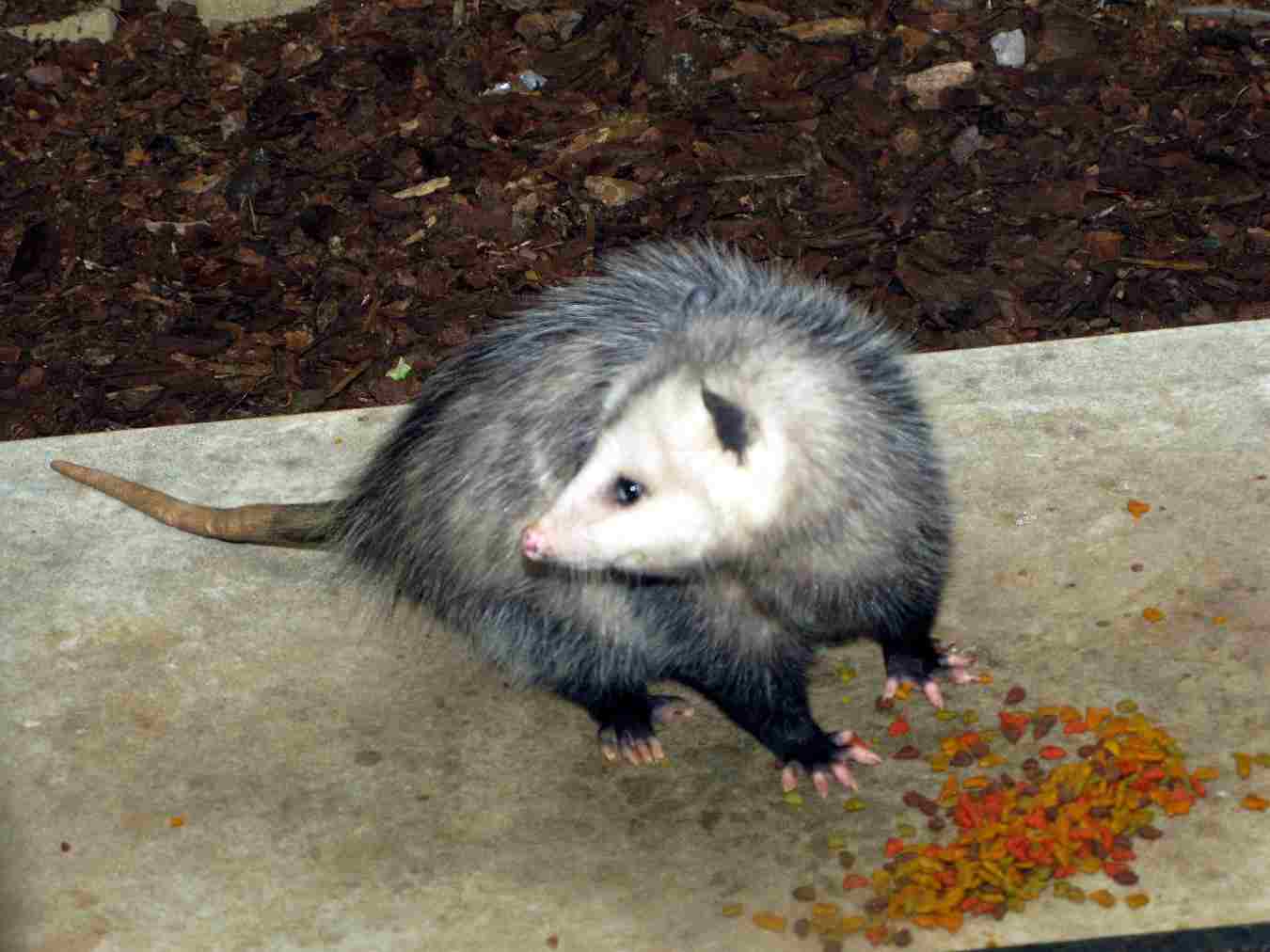
4). Do Not Leave Leftovers Outside
Leaving leftovers outside, especially at night, can help keep possums away from cat food. When you leave food scraps or unfinished meals outside, it becomes an easy and tempting meal for possums. By removing these food sources, you can discourage possums from venturing into your yard and accessing your cat’s food.
To prevent possums from being attracted to leftovers, it’s important to properly dispose of food waste. Make sure to seal garbage bags tightly and store them in secure containers. If possible, keep your garbage cans in a closed area or use bins with lids that possums cannot easily open.
In addition to disposing of leftovers properly, it’s also important to clean up any spilled food or crumbs around the feeding area. Possums have a keen sense of smell and can be attracted to even the smallest food particles. Regularly sweep or hose down the area to remove any food remnants.
5). Relocation of Possums
Relocating possums to other areas, such as forests or natural habitats, can be an effective way to keep them away from cat food. By removing possums from your immediate vicinity, you reduce the chances of them accessing your cat’s food and causing any potential conflicts.
When considering relocation, it’s important to follow local regulations and guidelines. Contact your local wildlife authorities or animal control to ensure you are following the proper procedures. They can provide advice on the best methods for trapping and safely releasing possums.
When relocating possums, choose a suitable location that provides them with access to food, water, and shelter. Forested areas or nature reserves are often ideal choices. Ensure that the new location is far enough away from your property to prevent the possums from returning.
6). Indoor Feeding
Indoor feeding is a practical solution to keep possums away from cat food. By feeding your cats indoors, you eliminate the opportunity for possums to access their food and cause any potential conflicts. This method ensures that your cats can eat in peace without any unwanted visitors.
When feeding your cats indoors, it’s important to create a designated feeding area. This can be a specific room or a corner of your house where you place their food and water bowls. Make sure to keep this area clean and free from any food debris that may attract possums.
Additionally, consider using covered feeding dishes or automatic feeders. These can help prevent possums from reaching the food and ensure that it remains exclusively for your cats. Covered dishes also help to contain any odors that may attract possums.
Remember to monitor your cats while they eat to ensure they finish their meals and don’t leave any leftovers behind. Leaving food out can attract possums and other unwanted pests. If your cats are slow eaters, consider feeding them smaller portions more frequently to minimize the chances of attracting possums.
7). Removal of Potential Attractions
To effectively keep possums away from cat food, it’s important to remove any potential attractions that may entice them. This includes all edibles such as garbage of all kinds, leftover food, and garden waste. Possums are opportunistic feeders and will readily consume these items if available.
Start by securing your garbage bins with tight-fitting lids to prevent possums from accessing them. Dispose of leftover food properly and avoid leaving it outside where possums can find it. Additionally, regularly clean up any fallen fruits or vegetables from your garden, as these can also attract possums.
By removing these potential attractions, you reduce the likelihood of possums being drawn to your property and cat food. Remember to maintain cleanliness and proper waste management practices to create an environment that is less appealing to possums.
8). Possum-Proof Feeder Usage
Possum-proof feeders are an effective solution to keep possums away from cat food. These specialized feeders are designed with features that prevent possums from accessing the food. One common design is a feeder with a weight-activated mechanism that closes the feeding ports when a possum’s weight is detected. This ensures that only the intended cat can access the food while keeping possums at bay. Another option is a feeder with a narrow opening that only allows cats to reach the food, as possums are unable to fit through.
By using a possum-proof feeder, you can ensure that your cat’s food remains untouched by possums. This not only prevents possums from consuming the food, but also reduces the risk of possums returning to your property in search of more food.
9). Supervised Feeding of Cats
Supervised feeding of cats is an effective strategy to keep possums away from cat food. By monitoring your cat’s feeding time, you can ensure that the food is consumed promptly and not left unattended. This reduces the opportunity for possums to access the food and helps to deter them from your property.
Additionally, supervising the feeding process allows you to remove any leftover food immediately, preventing possums from being attracted to the scent. It is important to note that when supervising the feeding of cats, you should avoid leaving food outside for extended periods. This practice not only helps to keep possums away but also promotes responsible pet ownership by ensuring that your cat’s nutritional needs are met without attracting unwanted wildlife.
10). Do Not Leave Food at Exists
To prevent possums from accessing cat food, it is crucial not to leave any food at exits. Possums are opportunistic feeders and will take advantage of any easy food source. Leaving food near exits increases the likelihood of possums finding it and potentially returning to your property. Make sure to clean up any spilled or leftover food promptly and dispose of it properly. Additionally, avoid placing cat food near doors or windows where possums can easily reach it.
By eliminating food sources near exits, you can discourage possums from lingering around your home and reduce the chances of them coming into contact with your cat’s food. This simple step can go a long way in keeping possums away from cat food and protecting your property.
11). Use of Possums Repellents
To further deter possums from accessing cat food, you can utilize various possum repellents. One effective option is peppermint oil, which possums find repulsive due to its strong scent. Simply apply a few drops of peppermint oil around the feeding area to create a barrier that possums will avoid. Another natural repellent is cayenne pepper, which can be sprinkled around the perimeter of the cat food to discourage possums from approaching.
In addition to these natural remedies, ammonia can also be used as a possum repellent. Soaking rags in ammonia and placing them near the feeding area can help deter possums. Alternatively, you can consider using rodent repellent sprays specifically designed to repel possums. These sprays contain ingredients that possums find unpleasant and can be applied around the feeding area.
FAQs
1. Do Possums Eat Rats and Mice?
Yes, possums can eat both rats and mice. They are opportunistic omnivores and will consume a variety of small animals if given the chance. Possums are known to scavenge for food, and rats and mice are often found in the same habitats as possums. However, it’s important to note that possums primarily feed on fruits, vegetables, insects, and carrion.
While they may eat rats and mice occasionally, it is not their preferred food source. Possums play a beneficial role in controlling rodent populations by eating insects and other small pests.
2. Can You Feed Possums Cat Food?
Yes, you can feed possums cat food, but it is not recommended. While possums are opportunistic eaters and can consume a variety of foods, including cat food, it is best to avoid feeding them in human areas. Feeding possums cat food can attract them to residential areas, leading to potential conflicts and disturbances.
Possums are wild animals and should be allowed to forage for their natural food sources, such as fruits, vegetables, insects, and carrion. Feeding them cat food can disrupt their natural feeding behaviors and dependency on human-provided food.
3. What is Possums’ Favorite Food?
Possums have a diverse diet, but what is their favorite food? Possums are known to have a preference for plant-based foods with a strong scent, such as bananas and apples. These fruits are not only delicious to possums but also provide them with essential nutrients. In addition to fruits, possums also enjoy consuming vegetables like carrots and sweet potatoes.
These foods are rich in vitamins and minerals, which are important for their overall health and well-being. Possums are opportunistic eaters, so they will also consume insects, small animals, and carrion if available. However, their favorite food tends to be plant-based.
4. Where do Possums Sleep in the Winter?
During the winter months, possums do not hibernate like some other animals. Instead, they rely on finding suitable shelter to keep warm and safe. Possums are known to seek out a variety of places to sleep during this time. One common location is in tree hollows, which provide protection from the elements and predators. They may also make use of abandoned burrows or dens created by other animals.
Possums are adaptable creatures and can also find shelter in man-made structures such as attics, sheds, or even under houses. These spaces provide insulation and protection from the cold. It’s important to note that while possums may seek shelter in these areas, they are not destructive animals and do not cause significant damage.
5. Do Possums Eat Bread?
Possums are opportunistic eaters and will consume a variety of food sources, including bread. While bread is not a natural part of their diet, possums are known to scavenge for human food when available. Bread can be an easy source of calories for them, especially if it is left out or accessible in outdoor areas.
However, it’s important to note that bread should not be a primary food source for possums. Their diet primarily consists of fruits, vegetables, insects, and small animals. Feeding possums bread in large quantities can lead to nutritional imbalances and health issues.
To discourage possums from eating bread, it’s best to secure any outdoor food sources and properly dispose of leftovers. By removing potential attractions, you can help prevent possums from becoming reliant on human food and encourage them to seek out their natural diet.
6. Do Possums Eat Meat?
Yes, possums do eat meat in various forms. While their diet primarily consists of fruits, vegetables, insects, and small animals, possums are opportunistic eaters and will consume meat when available. They are known to scavenge for carrion, such as dead animals, and will also eat small rodents like rats and mice.
7. How to Help Opossums in Winter
To help opossums during the winter months, there are several ways you can provide support. Firstly, ensure there are suitable shelter options available, such as providing nesting boxes or leaving brush piles in your yard. Also, you can leave out food sources like fruits, vegetables, and nuts around their habitat, to supplement their diet.
8. What Kind of Fruit do Possums Eat?
Possums have a varied diet and consume various kinds of fruit. They are particularly attracted to fruits with a strong scent, as it helps them locate their food. Some of the fruits that possums commonly eat include apples, pears, bananas, grapes, and melons. These fruits provide possums with essential nutrients and hydration during the winter months when other food sources may be scarce.
It’s important to note that possums are opportunistic feeders and will also eat other food items such as insects, small animals, and even carrion.
9. Where do Possums Live in The Winter?
Possums have adapted to various habitats and can be found in different locations during the winter months. One common place where possums live in the winter is in tree hollows. These hollows provide them with shelter and protection from the cold weather. Possums are also known to seek refuge in attics, crawl spaces, and other enclosed spaces in buildings. These structures offer warmth and safety from predators.
Another location where possums may live in the winter is in dense vegetation, such as thick bushes or shrubs. These areas provide cover and insulation against the elements. Additionally, possums may create nests using leaves, grass, and other materials to further protect themselves from the cold.
10. Do Opossums Eat Ticks?
Opossums are known to be voracious tick eaters. Research suggests that they can consume thousands of ticks per day, making them valuable allies in controlling tick populations. These small, blood-sucking parasites can transmit diseases such as Lyme disease, so having opossums around can help reduce the risk of tick-borne illnesses.
Opossums have a unique immune system that allows them to tolerate tick bites without getting sick. They groom themselves regularly, removing ticks from their fur and consuming them in the process. This behavior not only helps keep the opossums themselves healthy but also contributes to the overall reduction of tick numbers in their environment.
11. Do Opossums Hibernate in the Winter?
Opossums do not hibernate in the winter. Unlike many other animals, opossums are not adapted to go into a deep sleep or torpor during the colder months. Instead, they rely on their ability to adapt to changing conditions and find suitable shelter and food sources.
During the winter, opossums may experience a decrease in activity due to the colder temperatures and reduced availability of food. However, they remain active and continue to search for food throughout the season. Opossums have a diverse diet that includes fruits, insects, small animals, and even carrion, which allows them to find food sources even in the winter months.
In terms of shelter, opossums are known for their resourcefulness. They can utilize various types of dens, such as tree hollows, brush piles, and even abandoned burrows. These shelters provide them with protection from the elements and help them conserve body heat.
While opossums do not hibernate, they may enter a state of torpor during extremely cold periods. Torpor is a temporary reduction in metabolic activity that helps conserve energy. However, this is not a true hibernation state like some other animals undergo.
12. How Long Do Opossums Hibernate?
Opossums do not hibernate in the traditional sense. While they may enter a state of torpor during extremely cold periods, it is not a true hibernation like some other animals undergo. Torpor is a temporary reduction in metabolic activity that helps conserve energy.
During torpor, opossums may experience a decrease in body temperature and heart rate, which allows them to conserve energy and survive harsh winter conditions. However, they can quickly awaken from this state if disturbed or if the weather improves.
The duration of torpor can vary depending on the severity of the winter and the availability of food. In milder climates, opossums may only enter torpor for a few days or weeks at a time. In colder regions, they may remain in torpor for longer periods, ranging from a few weeks to several months.
It’s important to note that opossums are adaptable creatures and can adjust their behavior based on environmental conditions. They have evolved to withstand cold temperatures and find food sources even in the winter months. This ability to adapt and survive without hibernation is one of the reasons why opossums are successful in a wide range of habitats.
13. Why Do Possums Eat Rats?
Possums eat rats for various reasons. One reason is that rats are a source of food for possums, especially when other food sources are scarce. Rats are small and relatively easy for possums to catch and consume. Additionally, rats can be considered a nuisance and potential threat to possums’ territory, so by eating rats, possums help maintain their own habitat.
It’s also possible that possums eat rats as a way to control their population, as rats can reproduce quickly and become a problem if left unchecked. Overall, possums eating rats is a natural behavior that serves multiple purposes for their survival and ecosystem balance.
14. What Insects Do Possums Eat?
Possums have a diverse diet that includes various insects. One of the insects that possums eat is cockroaches. Cockroaches are a common pest that can infest homes and pose a threat to human health. However, possums can help control their population by consuming them.
In addition to cockroaches, possums also eat other insects such as beetles, ants, spiders, and crickets. These insects are often found in gardens, lawns, and other outdoor areas. By feeding on these insects, possums play a role in maintaining the balance of the ecosystem.
15. What do Baby Possums Eat and Drink?
Baby possums primarily consume their mother’s milk, which provides essential nutrients. As they grow older, baby possums start to eat solid foods. Their diet includes eggs, small quantities of dog and cat food, tuna, sardines, insects, and mollusks. These foods are rich in protein and help meet their nutritional requirements.
16. Do Possums Keep Rats Away?
Possums can help keep rats away. They are known to eat rats and other small rodents, making them natural predators. This can be beneficial in controlling rat populations in certain areas. However, it’s important to note that possums may not completely eliminate rat infestations on their own.
Other pest control methods may still be necessary to effectively manage rat problems.
17. Do Australian Possums Eat Rats?
Yes, Australian possums do eat rats. They are opportunistic feeders and will consume small rodents like rats if given the chance. However, it’s important to note that possums primarily feed on fruits, leaves, flowers, and insects.
Rats are not their main source of food, but they may prey on them if they come across them. Possums play a role in controlling rat populations, but they are not a guaranteed solution for rat infestations. Other pest control methods may still be necessary to effectively manage rat problems in Australian possum habitats.
18. Do Possums Eat Cats?
In general, possums do not eat cats. Cats are relatively large animals and can defend themselves against possums. However, whether possums prey on cats or not depends on the size, age, and health of the cat. Possums are opportunistic feeders and will consume small animals if given the chance, but cats are not their primary source of food.
It is important to note that possums are more likely to scavenge for fruits, leaves, flowers, and insects rather than actively hunt cats. So, while it is rare for possums to eat cats, it is still important to keep an eye on your pets and ensure their safety.
19. Will Rat Poison Kill a Possum?
The effects of rat poison on possums depend on the composition of the poison. Rat poison can be harmful to possums and may cause neurological damage and internal bleeding. However, it is important to note that possums are not the primary target of rat poison, which is designed to kill rats and mice.
Possums are less likely to consume rat poison directly, as they are more inclined to scavenge for fruits, leaves, flowers, and insects. Nevertheless, it is crucial to use caution when using rat poison to avoid unintentionally harming possums or other non-target animals.
20. Do Possums eat Dead Rats?
Possums are opportunistic scavengers and will eat dead rats if they come across them. However, it is not a common part of their diet. Possums primarily feed on fruits, leaves, flowers, insects, and small animals like mice and rats.
They are more likely to scavenge for fruits and insects rather than actively hunt for dead rats. So while possums may eat dead rats if they find them, it is not a significant part of their diet.
21. Are Possums Dangerous?
Possums are generally not dangerous to humans. They are shy and non-aggressive creatures that prefer to avoid confrontation. However, if they feel threatened or cornered, they may hiss, growl, or show their teeth as a defensive mechanism.
While possums may carry diseases such as leptospirosis and tuberculosis, the risk of transmission to humans is low. It is important to avoid direct contact with possums and to keep pets away from them.
22. Do Australian Possums Eat Mice?
Yes, Australian possums do eat mice. In addition to mice, they also consume rats, voles, and other small rodents. These opportunistic omnivores have a varied diet that includes fruits, leaves, insects, and small animals. While possums primarily feed on plant matter, they are known to hunt and eat small mammals when the opportunity arises.
This includes mice and other rodents that may be found in their habitat. So, if you have a problem with mice in your area, having possums around can actually be beneficial as they help to control the rodent population naturally.
